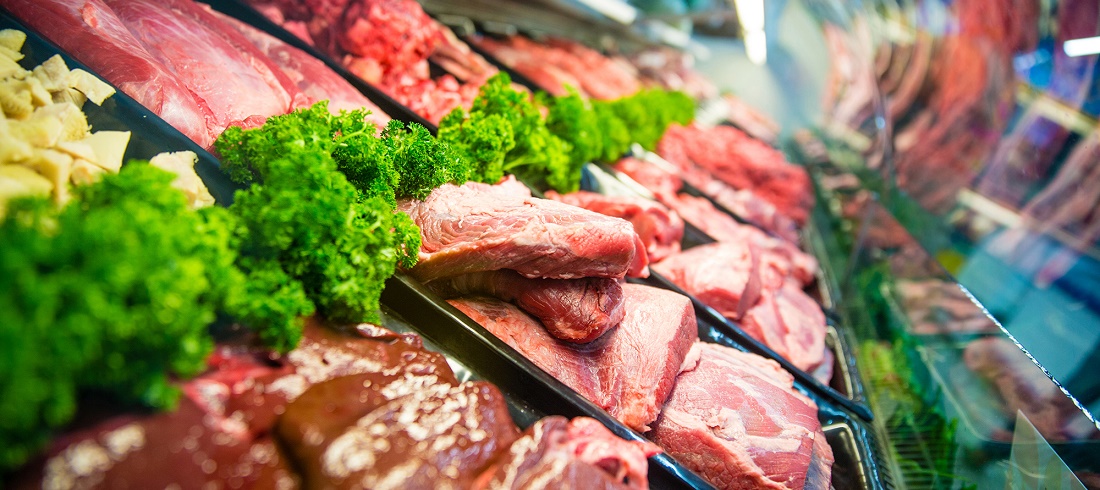
French retail group expands boycott on Brazilian beef
Nov, 22, 2024 Posted by Sylvia SchandertWeek 202444
The pressure from French retail chains to boycott Brazilian beef and products from Mercosur countries has intensified. The movement, initiated by Carrefour on Wednesday (20), was joined on Thursday by Les Mousquetaires, owner of two major retail chains. This boycott is another chapter in France’s opposition to the free trade agreement between the European Union and Mercosur, which appears increasingly unlikely due to French resistance. Besides the opposition from President Emmanuel Macron’s administration, French agricultural producers have been holding repeated protests against the agreement’s implementation.
Experts consulted by Valor suggest that the agreement is unlikely to succeed. It will either not be finalized or, if it is, will be significantly diluted. Brazilian diplomats claim that the agreement is close to conclusion this December, but its approval hinges on unanimous consent from all EU parliaments. Even if the European Commission approves it without French consent, the economic clauses, which are the core of the agreement, cannot be applied.
Livio Ribeiro, a partner at BRCG and researcher at the Fundação Getulio Vargas’s Brazilian Institute of Economics (Ibre-FGV), is skeptical about the agreement’s prospects. He sees Carrefour’s actions as part of this process. “We know that the biggest opposition to the agreement, at least publicly, comes from European farmers, particularly French farmers. This is just another shot in that battle,” says the economist. “But I don’t believe the agreement will materialize. It seems to have been designed for a reality that no longer exists in today’s world, in Europe and Brazil. We’ll reach the last minute and a renegotiation with an extended timeline will be necessary. Carrefour’s action is yet another reflection of this.”
Mr. Ribeiro believes the agreement was not crafted for the current world, with its complex taxation structures and trade wars, along with rising protectionism. He suggests it is crucial to acknowledge that “the surrounding conditions have changed.”
José Augusto de Castro, president of the Foreign Trade Association (AEB), states that the organization supports the agreement but acknowledges that commercial relations have shifted significantly in recent years and uncertainty could be exacerbated by policies promised by U.S. President-elect Donald Trump. According to Mr. Castro, the current scenario presents more negative factors than positive ones for the signing of the Mercosur-EU agreement.
Lia Valls, a professor at the State University of Rio de Janeiro (UERJ), suggests that concerns regarding the Trump administration might play out differently. In favor of the agreement’s signing is Europe’s pursuit of strengthening multipolarity in the face of Mr. Trump and China, which has been gaining ground in South American markets. However, she notes that France is a significant voice within the European Union and is not alone.
“Agriculture is a very strong force within the French electorate, and Macron has struggled with approval ratings among the French,” Ms. Valls comments. “The signing of the agreement will largely depend on other European countries, on whether they want to confront France or not. It is much more contingent on the political assessment of the agreement’s importance at this moment.”
Eduardo Menicucci, a professor at the Fundação Dom Cabral, believes that the trend is for countries to favor bilateral agreements over bloc treaties, which might be “more effective.”
Welber Barral, partner at BMJ and former Secretary of Foreign Trade, sees two aspects to Carrefour’s stance. “The first is that Carrefour in France is catering to its local suppliers and consumers. It’s a marketing move for them. The second point is that there is a real risk existing in various other products, which is the notion of creating private standards. And that ultimately complicates Brazilian exports to such clients.” Mr. Barral explains that private standards may involve demands from French retail chains for Brazilian meat exporters to acquire certifications indicating compliance with sanitary, social, environmental, and carbon emission standards, for instance. Mr. Barral considers Carrefour’s measure as “part of the game” in the agreement negotiations.
Background
On Wednesday, Carrefour CEO Alexandre Bompard announced that the supermarket chain decided to exclude meats from Mercosur countries from its product portfolio in France. On Thursday, European media reported that Les Mousquetaires, owner of the Intermarché and Netto chains, joined the boycott.
Since last week, farmers on tractors have been blocking roads leading to the port of Bordeaux, which connects the city to the Atlantic via the Garonne River, according to José Perez, a representative of the labor union Coordination Rurale, speaking to Reuters. For many French producers, the port, which also includes a grain terminal, represents the entry point for products engaging in unfair competition by not being subject to the same internal regulations. According to RMC radio, at least 85 protest sites were recorded across France on Monday.
On Monday, EuroCommerce, which lobbies for European supermarkets, stated in a release that it is part of 78 professional federations that signed an appeal to “accelerate the conclusion of the EU-Mercosur free trade agreement negotiations,” arguing that it could “help mitigate the challenges imposed by geopolitical instability and supply chain disruptions.”
The Federation of Rural Associations of Mercosur (FARM), bringing together producer organizations from Argentina, Brazil, Uruguay, Paraguay, Chile, Colombia, and Bolivia, issued a statement describing Carrefour’s decision as “arbitrary, protectionist, and misguided,” asserting that it harms Mercosur countries and disregards the high standards of sustainability and quality in the region’s production.
Source: Valor Internacional
-
Grains
Jul, 18, 2023
0
Paraná ports see strong 6% increase in H1 cargo throughput
-
Grains
Dec, 17, 2019
0
Protocol to export soybean meal from Brazil to China advances
-
Economy
Aug, 30, 2022
0
Argentina sends companies to Brazil on business mission to increase exports
-
Blog News (ENG)
May, 02, 2023
0
Brazilian container exports see strong rebound in March

